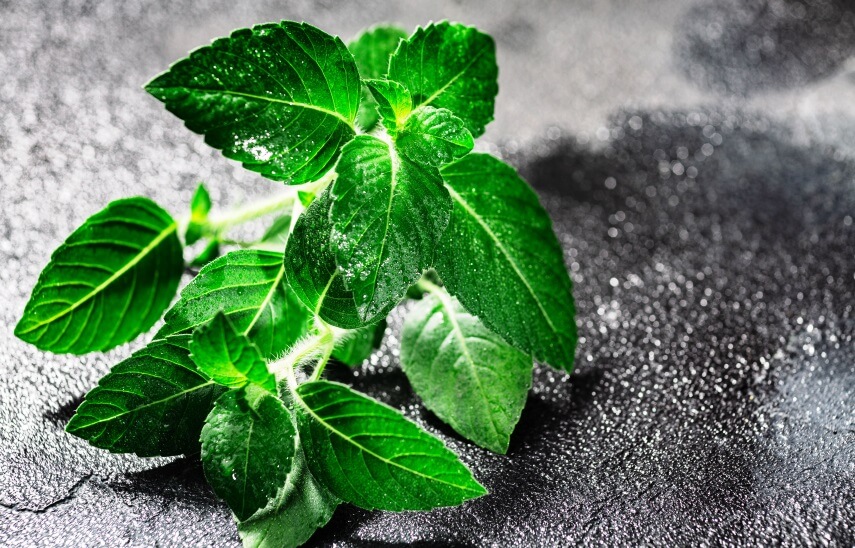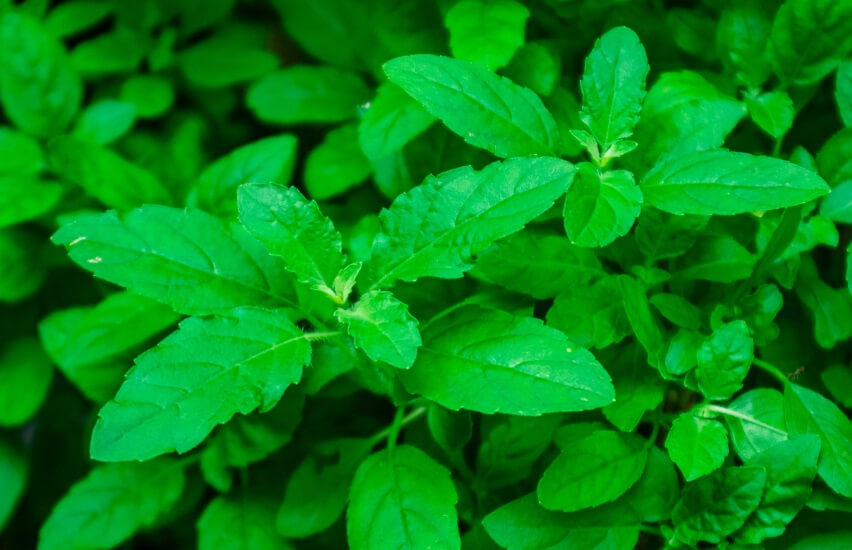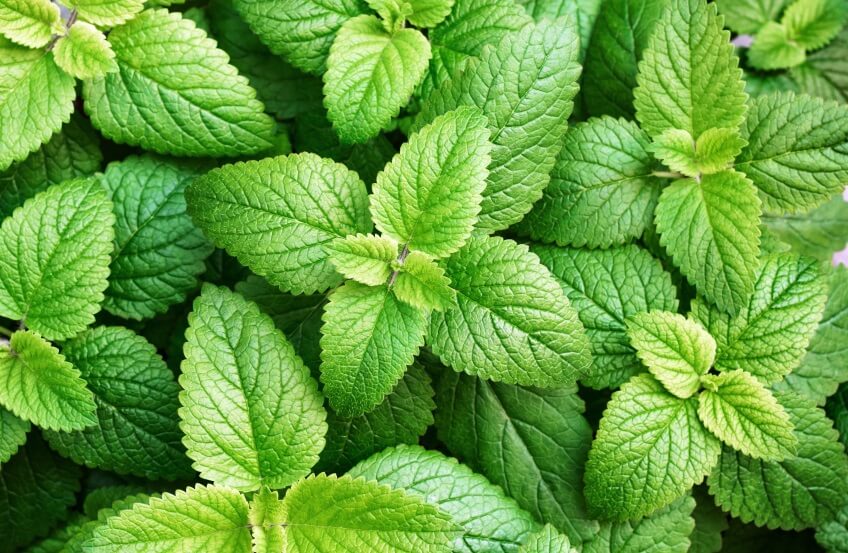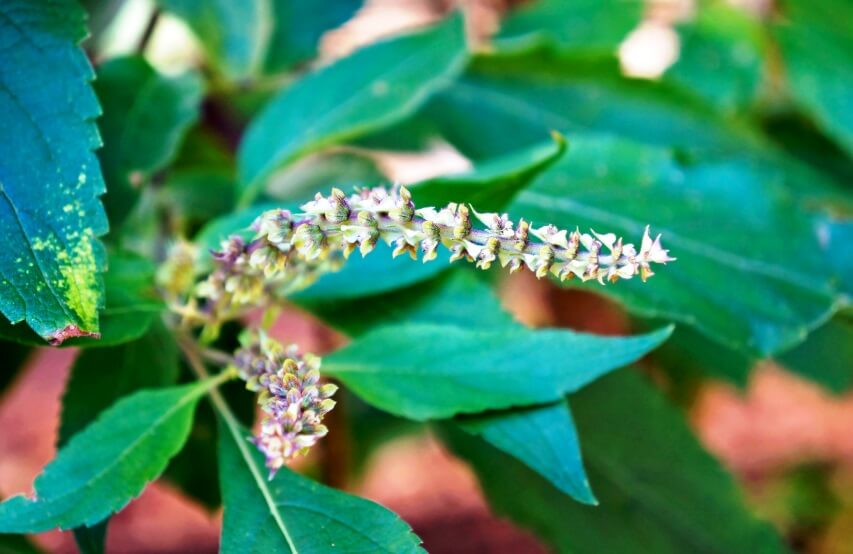The scent leaf is locally cultivated in Nigeria and is mainly used as a “spice for cooking food and dishes”. They’re a symphony of flavors and fragrances. This remarkable leaf boasts a tantalizing aroma and a taste that dances on the palate. Yet, this leaf’s allure extends far beyond the kitchen.
The narrative of the scent leaf doesn’t halt at its aromatic symphony. Deeply rooted in tradition, scent leaf plants have embraced roles as healers, tapping into the essence of nature’s chemistry to offer remedies for diverse maladies. Scientific research has cast light on their richness, revealing a treasure trove of bioactive compounds of scent leaf plants. Due to the importance of Scent leaf health benefits, this article seeks to delve into the benefits of scent leaf plants and their nutritional value.
If you are interested in this topic , you can also read
<<Papaya Seeds Benefits>> and <<Benefits Of Coconut Trees>> articles.
What Is Scent Leaf?
Scent leaf, known by various names like African basil, wild basil, clove basil, or its scientific name Ocimum gratissimum, is a native plant thriving in regions across Africa, South America, and South Asia. Its name, “scent leaf,” arises from its potent, minty, and delightful aroma. These leaves are covered in fine hairs, and the pleasant fragrance emanates from glands on the leaves [1].
Thanks to its captivating scent, this aromatic plant is widely embraced in West African cuisine, serving as both a leafy vegetable and a flavorful seasoning. Moreover, scent leaves have been traditionally recognized in herbal remedies due to their anti-inflammatory and anti-microbial characteristics [2].
Scent Leaf As An Ancient Remedy
Traditionally, various parts of the scent leaf plant were attributed to treating diverse ailments in India and Africa. For instance, the juice extracted from its leaves was employed to alleviate conditions like headaches, fever, and angina. The plant’s stem found application in addressing coughs, asthma, and wound infections, while crushed scent leaves were directly applied to the eyes to manage conjunctivitis. Moreover, scent leaves were employed as remedies for various issues, including fungal infections, colds, anti-malarial purposes, stomach discomfort, and catarrh [3].
Medical Properties Of Scent Leaf Components
The benefits of scent leaves are plentiful. These leaves are fiber-rich and encompass an array of essential minerals and vitamins. Contemporary research has unveiled the existence of tannins, saponins, flavonoids, alkaloids, phlorotannins, terpenoids, steroids, and cardiac glycosides in scent leaves, all of which contribute to their nutritional significance and their role in this traditional herbal medicine.
Furthermore, scent leaves are abundant in vitamin K, a crucial element that promotes blood clotting. In the upcoming sections, we will delve into the medicinal properties of some of these components.
Flavonoids
The presence of flavonoids in scent leaf can play a pivotal role in fostering anti-inflammatory and antioxidative responses within the body. These actions yield various health advantages, including hindering the growth of tumors, restraining bacterial proliferation, preventing ulceration, and alleviating arthritic discomfort. Moreover, flavonoids serve as protective shields for both the cardiovascular and neural systems, safeguarding them against damage and the effects of aging.
Studies indicate that flavonoids can be instrumental in combatting colorectal cancer, potentially reducing the risk of lung cancer emergence as well. Moreover, the presence of flavonoids in the bloodstream prevents blood clotting and reduces the likelihood of strokes. It’s also widely acknowledged that the flavonoids found in scent leaves possess anti-viral properties.
Terpenes
Terpenes, another vital component present in scent leaves, have been proposed as potential chemotherapeutic agents for addressing a broad spectrum of human ailments. These compounds have also demonstrated anti-inflammatory advantages, underscoring the potential of scent leaves for aiding conditions like osteoarthritis, bronchitis, ear edema, and chronic obstructive pulmonary disease.
Moreover, numerous studies have revealed the anti-tumor effects of terpenes found in scent leaf plant, hinting at the potential for these compounds to be utilized as therapeutic agents for combating various forms of cancer [4].
Alkaloids
Yet another constituent within scent leaves is referred to as alkaloid. Alkaloids are recognized for their ability to reduce blood pressure and provide stability to the neurological system, particularly in mental disorders. These compounds also exhibit the potential for antibacterial activity, positioning scent leaves as a valuable resource for traditional anti-malarial treatments. Furthermore, alkaloids stimulate the neural system and exert significant physiological effects on the body.
Steroids
Steroids, a category of secondary metabolites, exhibit diverse chemical, biological, and therapeutic attributes, including anti-diabetic, analgesic, anti-inflammatory, and anthelmintic properties. Notably, a research investigation has highlighted the potential benefits of scent leaf plants for diabetes owing to the presence of steroid compounds.
Scent Leaf Health Benefits
As we have explored the remarkable components that make up the essence of scent leaves, it’s fascinating to recognize that these components come together to gift scent leaves with many health-enhancing attributes. Building upon this foundation, let’s now venture into the realm of scent leaf benefits.
Anti-Convulsant Effect
Recent research has highlighted the potential of scent leaf extract to reduce seizures and provide protection against seizure-associated fatalities in mice, owing to its anti-convulsant characteristics. Furthermore, evidence suggests that scent leaf extract’s anti-convulsant attributes could have a beneficial influence on managing depression and anxiety.
Anti-Microbial Effect
One of the surprising scent leaf benefits is its anti-microbial properties. Many research endeavors have affirmed the remarkable anti-microbial abilities inherent in Ocimum gratissimum. These studies have demonstrated that the essential oil derived from Ocimum gratissimum demonstrates non-toxic antibacterial properties and is an effective agent against fungal strains [5].
Anti-Inflammatory Effect
Bioactive substances like eugenol, thymol, and rosmarinic acid are found in fragrance leaves. These compounds have exhibited noteworthy anti-inflammatory attributes, a pivotal element in combating chronic inflammation. Scent leaves could serve as a valuable natural solution for mitigating inflammation within the body, holding promise as a therapeutic approach [5].
Boosts Immune System
Scent leaves encompass bioactive components such as eugenol, thymol, and rosmarinic acid, acknowledged for their anti-viral prowess. These compounds exhibit the potential to restrain the replication of specific viruses, encompassing herpes simplex, influenza, and Human Immunodeficiency Virus (HIV). Furthermore, scent leaves could contribute to fortifying the immune system, thereby augmenting the body’s capacity to combat viral infections effectively.
Anti-Fertility Effect
Scent leaves hold promise as a potential agent with anti-fertility characteristics. These leaves comprise compounds that could disrupt the balance of specific hormones, such as estrogen and progesterone. These hormones are pivotal in governing both the menstrual cycle and fertility. Consequently, scent leaf plants offer a natural avenue for individuals seeking to manage and decrease their fertility levels [6].
Anti-diabetic
In addition to what has been said in previous paragraphs, scent leaf has shown their potential to reduce the glucose level in blood. It means that scent leaf can be considered as a treatment for diabetes too. Some research studies on diabetic rats have shown that daily oral usage of scent leaf would lead to glucose level reduction, possibly because of an increase in insulin sensitivity and beta-cell function as a result of alkaloids, flavonoids, saponins, and tannins present in the scent leaf.
Mosquito Repellant
That’s not all benefits of scent leaf plants. Scent leaf extract has been considered to be a traditional way of keeping mosquitos away. Recent scientific advancements also confirm the potential of essential oil of scent leaf as a natural, harmless, and inexpensive mosquito repellent. It means that using a scent leaf lotion will decrease the biting rate of mosquitoes. Interestingly scent leaf usage to fight against vermin does not stop here. Some studies have proved that scent leaf extracts can be used as a larvicide to kill mosquito larvae.
Conclusion
Ocimum gratissimum is a beneficial plant that can offer valuable contributions to managing various health issues through its impressive dietary and medicinal attributes. Incorporating scent leaf plants into your daily meals enriches your food’s nutritional and health value and imparts delightful flavors and aromas. Moreover, these herbs are even employed in forest bathing, harnessing their natural scents for relaxation and well-being.












